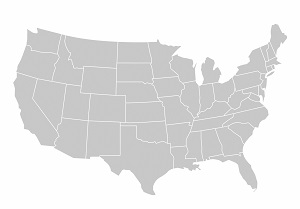As States Look to Expand Health Coverage, State FCAs Become More Important than Ever

The increasing burden of healthcare costs has state governments looking at new programs to expand government healthcare options for their residents. Such an expansion of government spending will require a corresponding expansion of efforts to root out fraud, waste, and abuse that steals taxpayer dollars and reduces the benefits available. Existing anti-fraud measures, including state False Claims Acts, will play a critical role. Such False Claims Acts allows individual whistleblowers to report fraud and work with the government to bring wrongdoers to justice.
Americans, and their governments, spend an eye-popping amount on healthcare, accounting for nearly one-fifth of the US economy. In 2021, each American, on average, incurred nearly $13 thousand of healthcare spending. Roughly half of that amount, or about $2 trillion, was funded directly by taxpayers, primarily though the Medicare and Medicaid programs. And, due to recent developments in state legislatures, government involvement in Americans’ healthcare is likely to increase in the near future.
Both the Medicare and Medicaid programs, by far the two largest government healthcare programs, have specific eligibility criteria. To be covered by the Medicare program, a person generally needs to be over 65, disabled, or have been diagnosed with end stage renal disease. Medicaid eligibility criteria differ in their particulars from state to state, but generally require a showing of financial need, proven through means testing.
Several states now have laws making their way though their legislatures that could greatly expand who can be covered by government-funded insurance. In the most recent example, earlier this month, a bill that makes a big step towards establishing a public option passed both Houses of New Mexico’s legislature. The law authorizes New Mexico to remove many eligibility criteria from the state’s Medicaid program and allow nearly all New Mexicans to enroll in a state-administered health plan, with premium subsidies provided inversely to income. A similar bill has been proposed in Minnesota as well, that program would create a sliding scale of premium subsidies to all Minnesota residents.
Both of these proposed laws further noble goals. Despite many efforts to expand coverage, there are still about 30 million uninsured Americans, or nearly 10% of the population. This presents financial strains for both individuals and the system at large. For individuals, the impact is obvious – an accident can launch an uninsured, or underinsured, person towards financial ruin. Additionally, uninsured individuals tend to avoid preventative care, only seeking treatment in emergencies when care is usually pricier. That cost is generally covered by the government and is passed onto the taxpayer, making healthcare more expensive for all.
However, with expanded coverage, there is a certainty of expanded fraud. Current healthcare fraud figures are already estimated to range from tens to hundreds of billions annually. Luckily, there’s already a powerful tool in the government’s quiver to combat and recoup money from fraudsters: the False Claims Act. It’s a Civil War era law that authorizes private citizens to act as whistleblowers and bring suit on behalf of the government against the companies (and individuals) committing the fraud.
To encourage these “private attorneys general” to take action, the statute provides various protections and incentives, including a potential reward of up to 30% of any government recovery. For the past 20 years, the majority of government recoveries under the statute have originated with whistleblowers, with billions recovered each year. Many states have analogous statutes, utilizing whistleblowers to recover state, in addition to federal, funds. Both New Mexico and Minnesota have enacted such laws.
It’s important to contribute resources to enforcement to anti-fraud as well as to coverage expansion. In the 2022 annual report on the state Medicaid Fraud Control Units, HHS-OIG reported that state anti-fraud efforts recovered $1.1 billion, which amounted to over three dollars recovered for every dollar spent. Other reports estimate that every dollar contributed to fighting healthcare fraud has a return-on-investment of nearly 5:1. As states aim to expand coverage, oftentimes substantially, fraudsters will be tempted to bilk the system. It’s important that states keep their soon-to-be expanded Medicaid programs sustainable by empowering whistleblowers to prevent and detect fraud.
Read more
- Government Healthcare Programs
- Healthcare & Pharmaceutical Fraud
- State and Local False Claims Acts
- I Think I Have a Whistleblower Case
- Contact Us Confidentially
Tagged in: FCA State, Government Programs Fraud, Healthcare Fraud, Medicaid, Medicare,